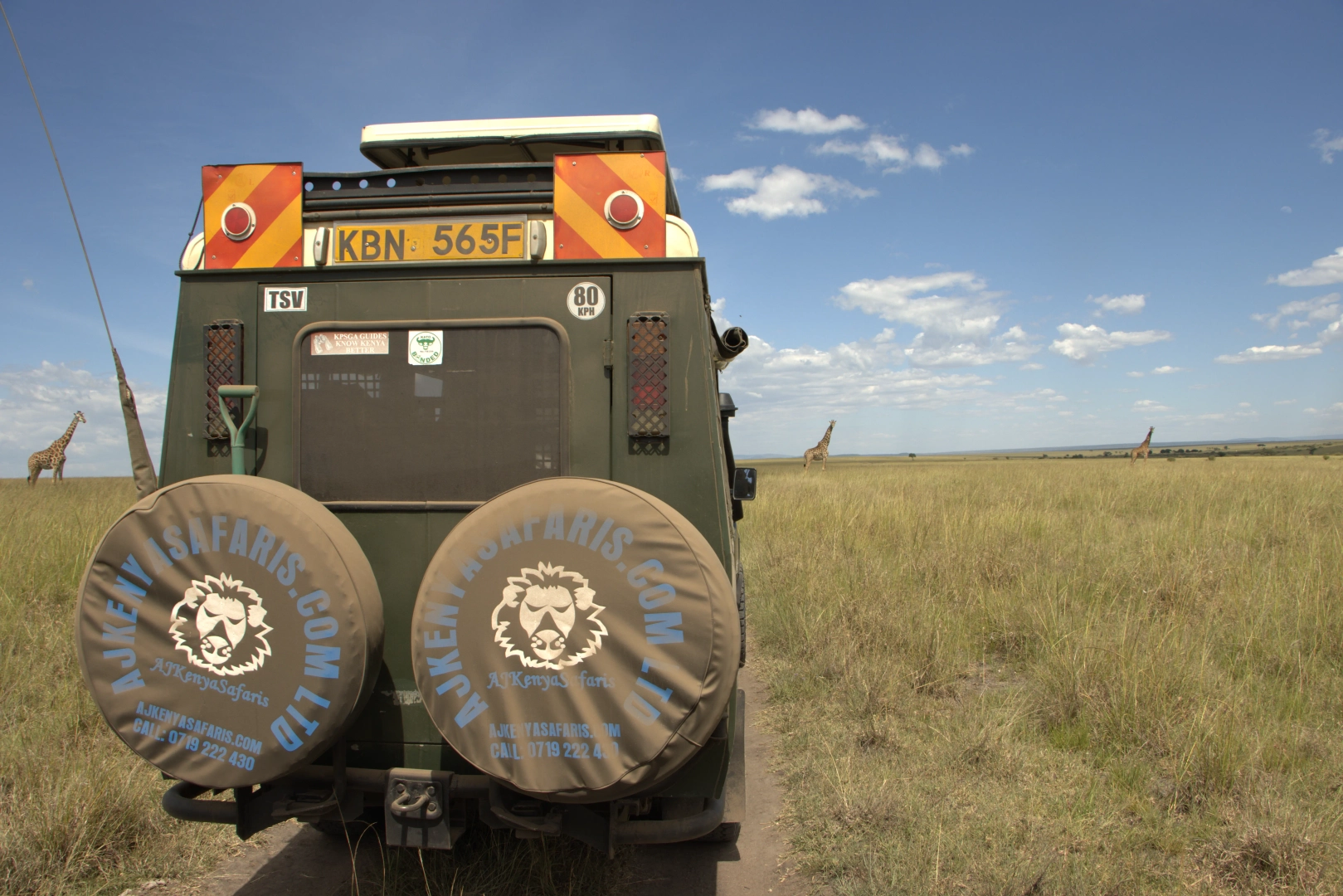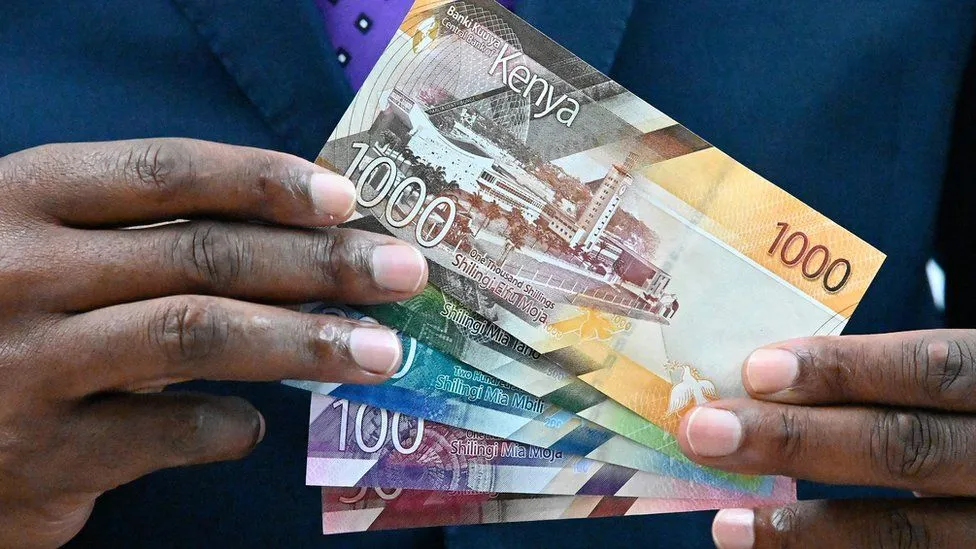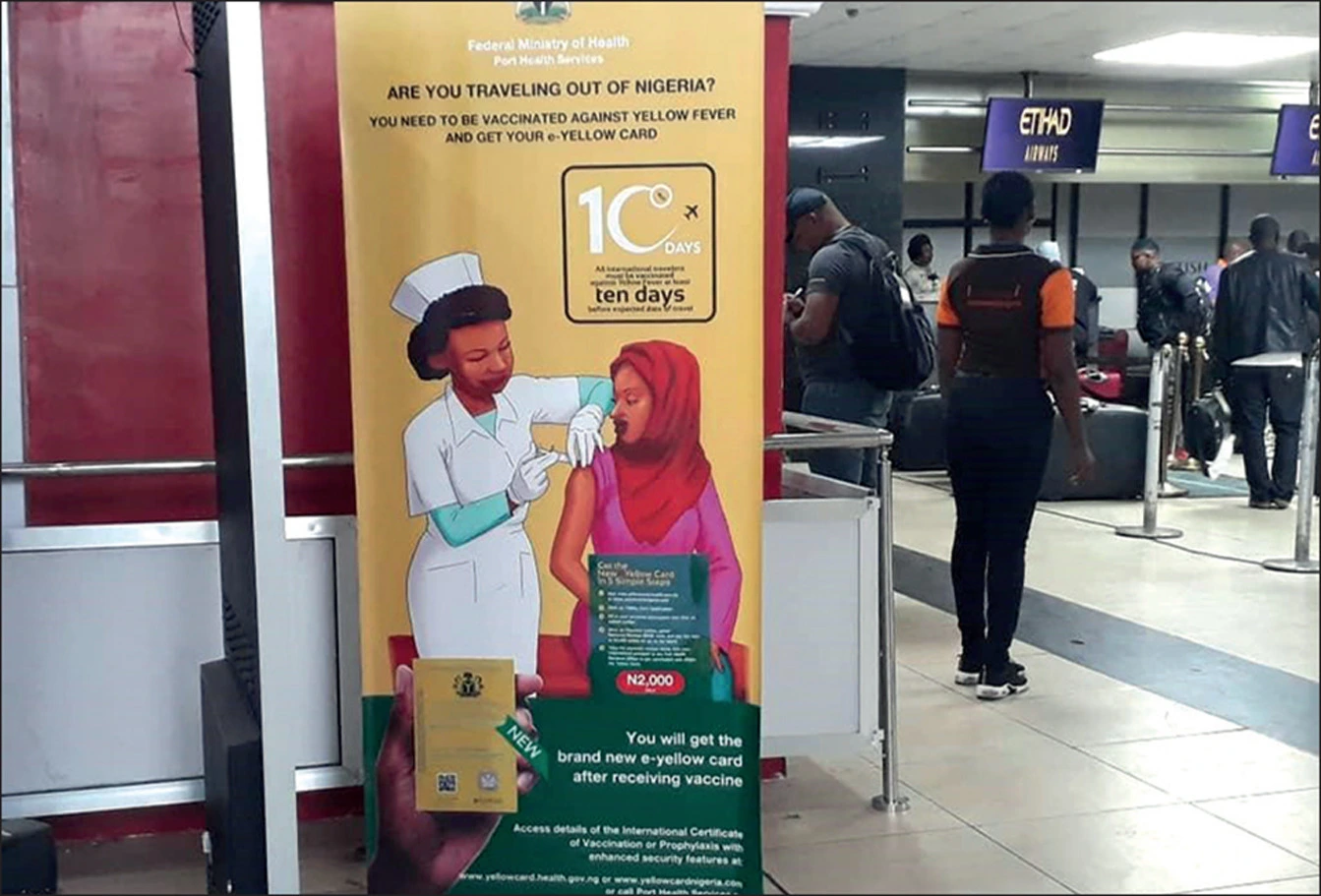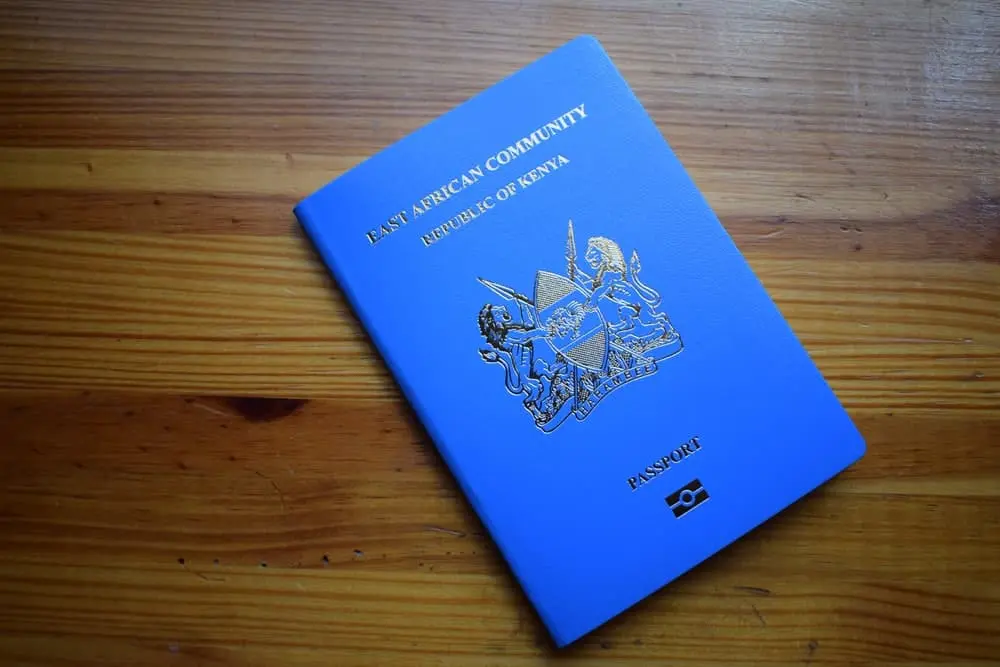Travelling in Kenya - Entry Requirements, Packages, and Travel Guide

Kenya is the ultimate safari paradise and the business capital of Africa. After the long halt due to COVID-19 lockdowns in 2020/21, Kenya has now fully resumed tourism and business travel. But how do you plan a safe and successful business or safari trip to Kenya? Is Kenya safe for UK citizens?
Luckily, our experts have prepared the ultimate Kenya travel guide. We will share the new Kenya entry requirements, safety guidelines you need to keep in mind when visiting Kenya, the vaccines you should take for Kenya, and travel advice on how to stay safe when touring Kenya.
We also answer the most common questions UK tourists ask while travelling to Kenya. But before then, let us share our contact details and our most booked Kenya travel packages from the UK.
Contact Us to Start Planning Your Trip to Kenya from the UK
At KenyaLuxurySafari.co.uk, we make travelling to Kenya from the UK a fun and enjoyable experience.
We help our guests apply for Kenyan visas, book hotels, book flights, set up a personal SIM card, plan a detailed itinerary for their safari holiday, and do everything else they need for a successful safari in Kenya including game drives.
We invite you to contact us by phone or WhatsApp at +254704532105. You can also reach us via email at james@ajkenyasafaris.com or safarioffers@kenyaluxurysafari.co.uk.
We are the local experts of safari tours in Kenya from the UK. Our promise is to show you our country better than anyone else.
Explore Our Most Booked Kenya Travel Packages - Safari and Beach Holidays
| Our Most Booked Safaris for 2023 | Price Per Person From | View the Itinerary |
|---|---|---|
| 3-Day Amboseli National Park Safari | From GBP 864 | Detailed Itinerary |
| 3-Day Meru National Park Safari | From GBP 1285 | Detailed Itinerary |
| 3-Day Tsavo East and West Safari | From GBP 770 | Detailed Itinerary |
| 4-Day Keekork Lodge Safari | From GBP 1111 | Detailed Itinerary |
| 4-Day L. Nakuru & Masai Mara Safari | From GBP 959 | Detailed Itinerary |
| 4-Day Masai Mara Luxury Family Safari | From GBP 1143 | Detailed Itinerary |
| 5-Day L. Naivasha, L. Nakuru, & Masai Mara Safari | From GBP 1359 | Detailed Itinerary |
| 5-Day Nairobi & Masai Mara Safari | From GBP 1134 | Detailed Itinerary |
| 6-Day Amboseli, L. Naivasha, & Masai Mara Safari | From GBP 2234 | Detailed Itinerary |
| 7-Day Honeymoon Safari to Kenya | From GBP 2016 | Detailed Itinerary |
| 7-Day Kenya Wildlife Adventure | From GBP 2060 | Detailed Itinerary |
| 8-Day Family Safari to Kenya | From GBP 2462 | Detailed Itinerary |
| 8-Day Helicopter and Wildlife Tour in Kenya | From GBP 9454 | Detailed Itinerary |
| 12-Day Kenya Wildlife & Beach Safari | From GBP 2688 | Detailed Itinerary |
| 14-Day Honeymoon Experience in Kenya | From GBP 5086 | Detailed Itinerary |
Travelling in Kenya - Safety Risks
There are several types of safety risks that tourists may face in Kenya. Health hazards remain the primary concern followed by petty crimes like theft, mugging, scams and financial fraud.
There are some rare instances of violent crimes like robbery, kidnapping, carjacking, and home invasions. Tourists should usually avoid crowded places and travel with a reputed tour agency. Here are some of the biggest safety risks while travelling to Kenya from the UK.
Is Kenya Safe - Crime & Fraud
There are criminal threats in Kenya, particularly in urban centres such as Nairobi and Mombasa. Travellers should be vigilant at all times, avoid travelling to remote areas, and avoid walking alone after dark. Travelling by car is generally safer than on foot, and those who do plan to travel in more remote areas of Kenya are advised to arrange for a security escort.
If you are travelling alone, you should be aware of local scams that can occur in urban areas of Nairobi, Mombasa, Kisumu, Malindi, and Lamu counties. There have been reports of petty crimes like bag snatching, mugging, and carjacking.
Those who are victims of violent crimes like robbery are also advised to report the incident to the local police and seek immediate medical treatment. In addition, travellers should be wary of scams and frauds that may target them specifically in Kenya, including fake police officers or government officials who may try to extort money from unsuspecting foreigners.
Avoid risk areas like northeastern Kenya and border areas. Ideally:
- Consult with local travel agents on strong personal security measures. You can reach us via +254704532105. You can also reach us via email at james@ajkenyasafaris.com or safarioffers@kenyaluxurysafari.co.uk.
- Travel in groups whenever possible.
- Keep the phone number of the UK embassy and local police stations.
- Read safety guidelines published by different embassies and consulates. As well as the travel advice we have shared on this page.
- Lock car-doors properly at all times.
- Avoid conversations with strangers.
- Avoid travelling in Kenya at night.
- Avoid crowded public places as much as possible.
- Travel with a reputed tour agency, ask for proof of licence from Kenyan Tourism Regulatory Authority.
- Carry your Passport, Alien ID, and Insurance documents, along with you at all times.
- Do not resist if you face any violent crime.
- Seek advice from local tour agents in times of crisis.
- Contact the nearest police station or tourism development office if you face any crime.
Overall, by following these simple tips and taking measures to remain vigilant, you can ensure a smooth and enjoyable trip to Kenya.
Travel to Kenya Advice - Health Precautions
Health risks in Kenya are quite common. There is an increased risk of contagious diseases like tuberculosis, cholera, dengue, yellow fever, meningococcal meningitis, and malaria. Ideally, monitor local media for reports of a severe disease outbreak in different parts of Kenya. Maintain personal hygiene like hand sanitization, and use reusable masks, even during safaris and game drives.
If you are planning to trek Mount Kenya on your next safari trip, make sure to check for symptoms of acute mountain sickness.
You should also take extra precautions inside safari lodges to avoid mosquito bites. Travellers from the UK to Kenya are advised to avoid public transportation.
If you have no other option, wear a mask at all times inside public transport to avoid airborne diseases through respiratory droplets.
Due to the prevalence of HIV, you should check for contaminated needles and infected blood while visiting a hospital in Kenya.
If you contract a severe disease, get admitted to the nearest hospital, contact any of the nearest western embassies, and try to shift to Nairobi. Kenya is well connected by major highways and airways. Make sure your travel insurance covers the costs of basic medical care. Email, call or whatsapp us at +254704532105 with any questions on visiting Kenya and we shall be happy to assist.

There are both private and public medical facilities in Kenya, but advanced medical treatment care is mostly located in urban centres. Food poisoning is also common in Kenya.
To avoid health risks due to contamination, you should consult with your tour agent on the quality of food and availability of bottled drinking water while visiting Kenya.
Also, tell your guide and tour operator of any underlying medical conditions you may have. If you have any underlying medical conditions that require you to take medicine, park enough and a buffer stock of about 20 days.
Contaminated food and poor sanitation can lead to parasitic infection. Take extra caution if you are travelling with younger children.
Is Kenya Safari for UK Citizen - Terrorism and How to Stay Safe
There are some incidents of terrorism in Kenya due to religious extremism. The terrorist group al-Shabaab is known for cross-border terrorism. However, terrorist incidents are limited to certain border regions in Northern Kenya and some Coastal areas near the Indian Ocean. The Masai Mara safari region is well protected and free from terrorist activities.
Travellers are advised to remain vigilant at all times. You should carefully consider your destination and travel routes, avoid risk areas known for terrorist activities, such as coastal areas and border regions with Somalia, Ethiopia and South Sudan, and heed official warnings from local authorities. Strictly avoid the Kenya-Somalia border regions for tourism purposes. The border areas of South Sudan, Somalia, and Ethiopia are most prone to further attacks.
In the event of a terrorist attack or security incident, travellers should leave the area immediately if it is safe to do so, avoid any affected areas in the aftermath of an attack, and follow instructions from local authorities. Additionally, tourists are advised to keep abreast of current security developments by monitoring local media outlets and staying in touch with friends and family back home.
Crowded places like supermarkets, government buildings, international schools, public transportation, sporting events, and public gatherings are more prone to terrorist attacks in Kenya. UK citizens are advised to remain vigilant, even in tourist destinations like beaches, cafes, hotels, nightclubs, and bars.
Travel to Kenya from UK Advice - Political Unrest
When travelling to Kenya, it is important to be aware of political unrest and civil violence. Even though political tension and civil unrest don’t directly affect UK tourists, westerners can get caught in the middle.
Political protests and large gatherings can turn violent, so it is important to avoid these areas entirely. You should also be wary of any riots or clashes that may take place in urban areas such as Mombasa, Nairobi, Kisumu, or Malindi. Avoid rural areas with a high concentration of refugee camps.
Kenya-UK Travel Tips - Natural Calamities
Natural disasters can occur anywhere, and Kenya is no exception. Being located at the Eastern coast of Africa, Kenya is prone to storms and heavy rainfall.
If you are visiting Kenya during the rainy seasons (mid-March to May and November-December), track the local weather reports before travelling. There are some rare instances of landslides in mountainous regions.
Travel Tips Kenya - Immigration and Local Laws
International tourists are required to declare all currency holdings (including gold jewellery) above $10,000 upon arrival. It is illegal for travellers to carry firearms, ivory, exotic wildlife, or original antiquities.
The government has strict laws against the exploitation of its natural heritage. Be respectful of local culture and traditions while visiting Maasai villages, or UNESCO world heritage sites in Kenya. Kenya has strict laws against public smoking. You can only smoke in Designated Smoking Areas in Kenya.
How to Select Insurance while Travelling to Kenya
Insurance is a good way to mitigate health risks while travelling in Kenya. Make sure your insurance covers overseas medical costs for serious diseases like meningococcal disease, hepatitis b, dengue, or any underlying health conditions.
You can also get coverage for COVID-19-related expenses like hospitalisation and quarantine. If you are travelling in Kenya during Masika or heavy rains, you may insure against booking cancellations, missing flights, or cancellations due to bad weather.
How to Keep your Money Safe in Kenya?
While travelling in Kenya, it is important to take measures to keep your money safe. You can exchange your UK sterling for Kenya Shilling at the Jomo Kenyatta International Airport.
You will also find a number of foreign exchanges. Additionally, you can exchange your money at select branches of big banks in Kenya. You can avoid cash by using ATM cards. However, make sure to check with your bank if your card would work in Kenya.

Incidents of ATM card fraud and card skimming are increasing in Kenya. Try using ATMs at large shopping centres or banks, as these are generally more secure than standalone machines. Additionally, travellers should always be cautious when paying with credit cards or using ATMs and should check for unusual parts on the machine before using it. Keep a close eye on your card while paying.
Do I need a Covid test to enter Kenya? - No Longer Valid
All passengers travellers to Kenya above the age of 12 will require one of the following-
- A vaccination certificate. All doses (full doses of WHO-approved vaccines only) must be completed at least 14 days prior to departure.
- A negative PCR test result was done within 72 hours prior to departure.
- A Rapid Antigen Test on arrival at the passenger’s own cost.
Although a COVID test is not required for vaccinated travellers, if you have flu-like symptoms, you must also fill out the online health surveillance form, and undergo testing at your own expense.
If you are found covid positive, you will be quarantined for at least 14 days as per guidelines issued by Kenya Health Ministry.
You also need to upload the certificates to PanBios or Global Haven website, which will generate a QR code for easier validation at immigration. The COVID-19 restrictions apply even if you board domestic flights within Kenya.
If you are travelling to Kenya from the UK, it is important to be aware that the country will accept proof of COVID-19 recovery and vaccination records from the UK, as well as proof of COVID-19 vaccination issued in the Crown Dependencies. However, it is important to note that your NHS appointment card cannot be used as a vaccination certificate in Kenya.
Do I have to be vaccinated to fly to Kenya?
No, it is not mandatory to be vaccinated to fly to Kenya. However, you will need a negative PCR test result for COVID-19 to get into Kenya, unvaccinated. The Kenyan government further recommends vaccination for Hepatitis B, Rabies, Cholera, and Typhoid, but these are not mandatory.
There is a high risk of yellow fever in Kenya. You may need to get vaccinated for yellow fever and have copies of the yellow fever vaccination certificate, if you are planning to visit high-risk areas like Garissa, Isiolo, Lamu county, Mombasa, Kilifi, Kwale, and Malindi.
Also, if you are travelling from a country with high risks of yellow fever, you need to be vaccinated at least 14 days prior to arrival. The certificate of vaccination against yellow fever (ICVP) is valid for a lifetime.

Is Kenya open for tourism?
Kenya officially reopened its tourism after the COVID-19 pandemic in March 2021. The government has slowly relaxed several travel restrictions. To know the current status of restrictions, you can visit the official website of the Ministry of Health, Kenya.
Are there any travel restrictions for Kenya during the COVID-19 pandemic?
Kenya introduced multiple restrictions during the COVID-19 pandemic, including lockdown of its cities, tourist spots, and all forms of long-distance transportation.
However, as the number of reported cases dropped, most restrictions were lifted. Tourists in Kenya are currently not required to wear masks, but COVID-19 regulations can change. For more updated information of COVID-19 travel restrictions for Kenya, you may visit the official website of the Ministry of Health, Kenya.
Can Kenyan citizens travel to the UK?
Kenyan citizens require a valid visa for travelling to the UK. You can avail of a visa for tourism education, medical care, business, or work purposes. The standard UK visa allows individuals to stay in the UK for up to 180 days. The actual number of days you are granted will depend on your travel purpose and itinerary.
Do I need a PCR test to enter the UK?
The UK removed all COVID-19 restrictions in March 2022. Travellers are no longer needed to show vaccination certificates or go through a PCR test to enter the UK.
Is it currently safe to travel to Kenya?
Kenya is one of the safest countries in East Africa. Kenya is a democracy that believes in the rule of law. The country has a well-developed tourism infrastructure to take care of international travellers.
It has an excellent network of highways, tourist help centres, police stations, and modern hospitals. If you need specialised medical attention, you can easily find a good healthcare professional in Nairobi or Mombasa.
What do I need to know when travelling to Kenya?
While visiting Kenya, it is important to be aware of new rules, regulations, Kenya entry requirements to avoid any misadventure.
- Kenya has banned single-use plastic.
- COVID-19 vaccination is required to enter Kenya. Unvaccinated tourists will need to go through a PCR test at their own expense.
- You are required to carry a Yellow Fever Vaccination certificate by law.
- Recommended Kenya-specific vaccines: Typhoid, meningitis, and polio vaccination.
- Take precautions against mosquito-borne diseases like malaria, and dengue. Take anti-malaria pills.
- Carry portable charging devices for your safari trips.
- Bring your raincoats and umbrellas, if you are planning to visit Kenya during the rainy season (March-May, and Nov-Dec).
- The currency of Kenya is Shilling. You can find multiple banks and foreign currency exchanges in Nairobi and Mombasa. You can also exchange currency at prominent hotels at a premium rate.
- The new Generation Bank Notes were introduced in 2019 by the Kenya Central Bank. Old 1000 Shilling Notes are not accepted.
- Pay heed to travel advice from the UK embassy, and the Ministry of Health, Kenya.
Do you need a PCR test to leave Kenya?
Pre-departure PCR or RTD tests will depend on the individual’s travel plan, And the health guidelines of the transit and destination country. In some cases, a PCR test may be required by certain airlines departing from Kenya.
Is a PCR test required to travel to the UK?
The UK government removed all COVID-related restrictions on international tourists in March 2022. This includes both travellers to the UK and passengers in transit.
Under the new guidelines, you do not need to take any COVID-19 TEST before you travel or after you arrive in the UK. This is applicable even if you are not vaccinated. However, if you travel to the UK through a third country, check the COVID-19 transit restrictions for the third country.
How much is a visa from Kenya to the UK?
Currently, the United Kingdom allows a max stay of 180 days for its standard visitor visa.
Flexible processing speeds and diverse pricing plans. You are able to choose from three processing speeds for your standard visitor visa application:
- Standard: 30 days
- Rush: 4 days
- Super Rush: 2 days
Pricing options for the visa application are based on the processing speeds they correspond to:
- Standard: GBP 150
- Rush: GBP 155
- Super Rush: GBP 165
The standard visitor visa is offered in both long-term and short-term options.
Is Kenya visa-free to the UK?
No, Kenya entry visas are not free to the UK. UK citizens above the age of 16 years are required to submit their Kenya entry visas electronically. The standard Single Entry Visa costs around 42 GBP, while a Transit Visa costs around 17 GBP.
You can also avail of a multiple entry visa for 83 GBP. You can pay the visa fees using card payments, online banking, or mobile wallets. Courtesy visas, issued to diplomats and government officials, are free.
Can UK citizens live in Kenya?
UK citizens cannot live in Kenya beyond their visa timeframe. If you overstay in Kenya, you can be declared as an “undesirable immigrant,” and be forcefully deported back to the UK. It will also adversely affect your future travel to Kenya from the UK.
If you plan to visit Kenya frequently for business, medical, tourism or other reasons, you can avail of the multiple entry visa, which is valid for up to 12 months. US citizens can apply for a 5-year multiple-entry visa.
If you have a work permit, you can legally stay and work in Kenya. The visa application process is digital, and all visas to Kenya are issued electronically. You can apply for citizenship You may contact the Kenyan Immigration Department or the Kenyan Embassy in London for more details.
Does Kenya require a PCR test?
You will need a negative PCR test result (the test should be done within 72 hours from departure) to enter Kenya without vaccination. If you do not have a PCR test result, you must go through a Rapid Antigen Test on arrival, at your own expense. Additionally, if you have flu symptoms, you need to get the Rapid Antigen Test done on your, irrespective of your vaccination status.
Can I drive in Kenya with a UK licence?
As road conditions and driving standards can be poor in Kenya, it is important to exercise caution when travelling by car. Travellers are advised to drive with windows closed and doors locked, avoid driving at night whenever possible, and consider driving in convoys when travelling outside cities or in remote areas. In addition, UK citizens should be wary of poorly maintained and uninsured matatus, or minibuses, that are common in the country.
Another potential risk while driving in Kenya is being stopped by traffic police, as on-the-spot fines are not legal. If you do encounter a police officer during your travels, you should ask for due process to be followed and request a ‘receipt for cash bond’, a document that will inform you of when and where to attend court in order to answer the charge against you.
What are the new requirements to enter the UK?
The UK removed all COVID-19-related restrictions for international travellers entering the UK. You are no longer required to undergo a PCR test, carry vaccination certificates, or register with the locator app. You can enter the UK with a valid visa.
You are also required to declare all goods that you plan to sell, or cash holdings above €10,000 if you are coming from outside the EU. You cannot carry any of these banned or restricted goods into the UK.
You may also be subject to customs checks upon arrival, so it is important to familiarise yourself with these regulations prior to travel. Overall, if you are planning a trip to the UK, it is essential to do your research in order to ensure smooth and hassle-free immigration.
Do I need a PCR test to leave Kenya?
Pre-departure COVID testing depends on the discretion of the airlines you choose to travel in. Whether you need a PCR or RTD test depends on the COVID related guidelines of the destination and transit countries. However, if you have visible symptoms of COVID-19, you may have to go through testing before boarding a flight to leave Kenya.
Do we need a PCR test to enter the UK?
No, you do not need a PCR or any COVID testing to enter the UK. You also do not need to go through any COVID testing on arrival. It applies to all passengers, vaccinated or not. You are also not required to quarantine after your arrival in the UK.
What is a good tip in Kenya?
There is no set amount that is considered a “good tip” in Kenya, as the amount you should tip will depend on various factors such as the quality of service, the type of establishment, and your budget. Generally speaking, we recommend tipping a tip of 10-15% for good services at restaurants, bars, spas, hotels, and safari tours.
If you are unsure about how much to leave, it is best to ask for guidance from management at the establishment or simply start with a smaller tip and see how it is received before increasing the amount. Overall, it is important to keep in mind that giving a good tip in Kenya is always appreciated by those who work hard to provide great service throughout your visit!
What should I know before travelling to Nairobi?
Nairobi is the capital of Kenya and a major transportation hub, linking all major domestic and international destinations. Two Trans-African Highways pass through Nairobi; the Cairo-Cape Town highway, and the Lagos-Mombasa highway.
Other transport hubs like Mombasa and Kisii are well connected with East Africa. The country is well connected through a network of paved roads, and numerous private bus operators. Some areas in Nairobi like Eastleigh, Kibera and Pangani, have high crime rates, so it’s better to avoid these areas.
Can Kenyan citizens travel to the UK?
Yes, Kenyan citizens can travel to the UK with a valid visa. A visa allows you to enter and stay in the country for a specific purpose and period of time. The UK offers several different types of visas to Kenyans, including short-term and long-term options. The most common one is the standard visitor visa, which you can use to stay in the UK for up to 180 days.
You can apply for a UK visa up to 3 months prior to departure. It may take up to 30 days for processing the UK visa for Kenyan citizens. If you are in a hurry, the UK offers Rush (4 days) and Super Rush (2 days) Processing to Kenyans for an additional fee. You can apply for a Work Permit in the UK if you have a job offer from a company located inside the UK, or specific skills that are in demand in the UK.

Does Kenya require a PCR test?
Kenya does not require a PCR test if you are vaccinated for COVID-19. You need to complete full doses of WHO-approved vaccines to get into Kenya without a PCR test. However, if you have flu-like symptoms, you may be required to go through a PCR test at your expense on arrival.
Do you need to be vaccinated to fly to Kenya?
All tourists (arrival and transit) are required to upload either their COVID vaccination certificate or a negative PCR test (done within 72 hours of departure) on PanBios or the Global Haven website (you will get a QR code). Additionally, tourists also need a yellow fever vaccination while travelling to Kenya from the UK.
Travellers in transit are not required to be vaccinated. UK citizens are further advised to get vaccinated for Hepatitis B, Rabies, Cholera, and Typhoid before travelling to Kenya, though these are not mandatory.
Is it safe to travel to Kenya right now?
While Kenya is one of the safest countries to travel in Africa, you should be aware of several health and security risks, before planning to travel to Kenya from the UK.
You must also be aware of the local laws and customs of Kenya before travelling. If you are travelling alone, take note of country-specific information to avoid risk-prone areas, natural disasters, or political unrest. Having a knowledgeable guide with you at all times is highly recommended.
